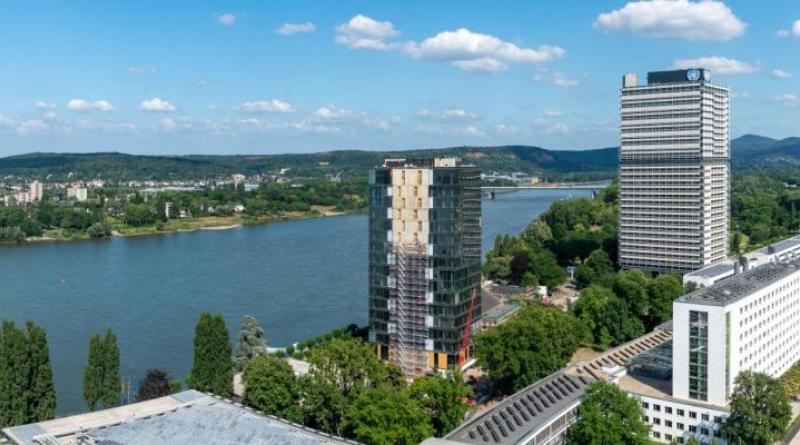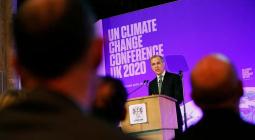COP Bureau Reschedules UNFCCC Subsidiary Body Meetings to 2021.

Bonn - At a virtual meeting yesterday, the Bureau of the Conference of the Parties to the UNFCCC decided to postpone the UN Climate Change meetings of the Subsidiary Bodies (SB52) until next year.
The meetings are to take place in the World Conference Centre in Bonn, Germany at a date which has yet to be decided.
The decision by the Bureau was based on the need to ensure not only full inclusion and participation, but the well-being and safety of all involved under the current travel restrictions and guidelines from local German health authorities in relation to the global health crisis around COVID-19.
The 11 members of the Bureau are nominated by each of the five United Nations regional groups and Small Island Developing States and provide advice and guidance regarding the ongoing work under the Convention, the Kyoto Protocol, and the Paris Agreement, the organization of their sessions and the relevant support by the UN Climate Change secretariat.
The members of the Bureau expressed their concern and regret regarding the situation but stated that there is no alternative to the decision.
The COP Presidencies of Chile and the UK, the Subsidiary Bodies (SB) Chairs and the UN Climate Change secretariat pledged that they will do everything to drive the UN climate change process forward despite the adverse circumstances.
The UN Climate Change secretariat and the SB Chairs will soon make proposals that will be sent to the members of the Bureau in order to decide on the specific plan going forward towards COP26.
Since the outbreak of the pandemic, several initiatives have been launched in order to drive momentum, showcase continuing climate action and urge greater climate ambition from all segments of society.
For example earlier this month, a series of online events were successfully conducted under the guidance of the Chairs of the UNFCCC’s Subsidiary Body for Scientific and Technological Advice and the Subsidiary Body for Implementation and with the support of the UNFCCC secretariat, the June Momentum for Climate Change.
“COVID-19 is an exceptional challenge impacting the lives of billions,” said UNFCCC Executive Secretary Patricia Espinosa, “but it has not put an end to climate change which continues to accelerate, it continues to be an existential threat and we must therefore, continue to take collective, multilateral action at a global scale to address it. It has changed the way we work, but it has not stopped it.”
COP25 President Minister Carolina Schmidt from Chile said: "Due to the global effects that COVID-19 continues to cause and taking note of the measures put in place by the German government, the COP Bureau decided to reschedule the UN Climate Change meetings of the Subsidiary Bodies. This is a necessary measure to protect all attending participants, delegates and observers.
Meanwhile, we will continue accelerating and foster the climate action agenda. This includes a continued dialogue with countries to present enhanced Nationally Determined Contributions during this year 2020, as well as the formulation of a clear roadmap towards COP26.”
COP26 President-Designate and Secretary of State for Business, Energy and Industrial Strategy Alok Sharma said: "While it is disappointing that the Bonn Subsidiary Body October meetings will no longer take place as planned, we appreciate that this is for the right reasons. Despite this postponement we must not lose momentum in our work to accelerate global climate action.
We will continue our close collaboration with the UNFCCC, COP25 Presidency Chile, the Subsidiary Body Chairs and our international partners to deliver a successful, ambitious COP in partnership with Italy in the U.K. next year.”
In May of this year, the Bureau of the Conference of the Parties, with the UK and its Italian partners agreed that the new dates for the COP26 UN Climate Change Conference are to be between 1 and 12 November 2021, in Glasgow.
About the UNFCCC
With 197 Parties, the United Nations Framework Convention on Climate Change (UNFCCC) has near universal membership and is the parent treaty of the 2015 Paris Climate Change Agreement. The main aim of the Paris Agreement is to keep a global average temperature rise this century well below 2 degrees Celsius and to drive efforts to limit the temperature increase even further to 1.5 degrees Celsius above pre-industrial levels. The UNFCCC is also the parent treaty of the 1997 Kyoto Protocol. The ultimate objective of all agreements under the UNFCCC is to stabilize greenhouse gas concentrations in the atmosphere at a level that will prevent dangerous human interference with the climate system, in a time frame which allows ecosystems to adapt naturally and enables sustainable development.
For media enquiries, please contact:
Alexander Saier
Chief, Communications and Knowledge
(mobile) +49 172 179 8835; E-mail: asaier(at)unfccc.int
UNFCCC Press Office: press(at)unfccc.int
23 June 2020
UNFCC




